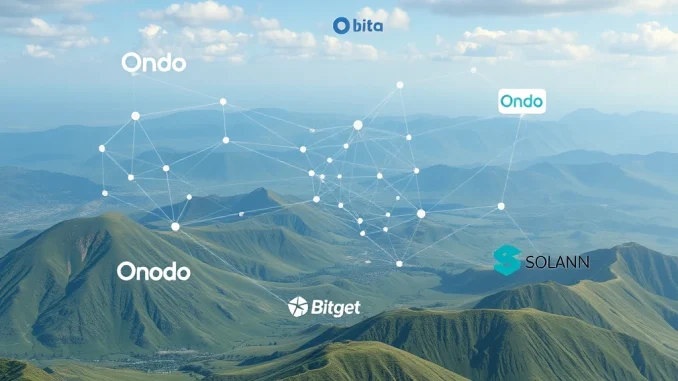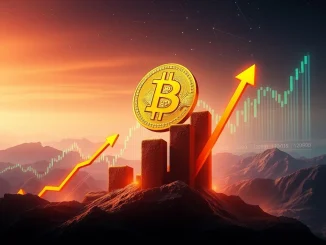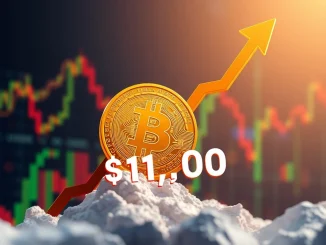
Are you ready for the next evolution in finance? The world of digital assets is constantly evolving, and a major step forward has just been announced. Ondo Finance, a prominent player in the blockchain space, is taking a lead role in shaping the future of finance by focusing on tokenized securities. This move aims to bridge traditional finance with the efficiency and transparency of blockchain technology.
What is the Global Markets Alliance and Why Does it Matter for Tokenized Securities?
Ondo Finance recently revealed the formation of the Global Markets Alliance via its official blog. This isn’t just a casual get-together; it’s a coalition of significant players across the crypto and blockchain ecosystem. The goal? To tackle one of the biggest hurdles in the adoption of tokenized securities: the lack of standardized practices.
Think about traditional financial markets. They operate under established rules, regulations, and technical standards that ensure smooth transactions, investor protection, and market integrity. The emerging world of tokenized securities, while promising immense benefits, currently lacks this widespread standardization. This alliance aims to fill that gap.
Key objectives of the Global Markets Alliance include:
- Establishing shared technical and operational standards for tokenized assets.
- Enhancing interoperability between different blockchain networks and platforms handling tokenized securities.
- Improving investor protections through clear, consistent frameworks.
- Boosting liquidity by making it easier to trade and transfer tokenized assets across the ecosystem.
Who’s Joining Ondo Finance in This Push for Blockchain Standards?
A strong alliance needs diverse and influential members, and the Global Markets Alliance appears to have gathered a notable group. The founding members represent various facets of the blockchain and digital asset world. Here are some of the key participants:
Joining Ondo Finance in this initiative are:
- Solana Foundation: A major blockchain platform known for its speed and scalability.
- Bitget Wallet: A popular multi-chain crypto wallet.
- Jupiter: A prominent decentralized exchange (DEX) aggregator on Solana.
- Trust Wallet: A widely used mobile cryptocurrency wallet.
- Rainbow Wallet: Another popular Ethereum wallet.
- BitGo: A leading provider of digital asset security and institutional custody.
- Fireblocks: A platform offering digital asset custody, transfer, and settlement solutions.
- 1inch: A decentralized exchange aggregator.
- Alpaca: (Assuming Alpaca Finance or a related entity) Likely involved in DeFi or brokerage services.
This diverse group, spanning layer-1 blockchains, wallets, DEXs, and institutional infrastructure providers, brings a wide range of perspectives and technical expertise to the table. Their collaboration is crucial for developing standards that are practical, widely adoptable, and beneficial for the entire digital asset ecosystem.
Why Are Standards Crucial for the Growth of Digital Assets?
The potential of digital assets, particularly tokenized securities (like real estate, stocks, bonds, or funds represented on a blockchain), is enormous. They promise fractional ownership, increased liquidity, faster settlement times, and greater transparency. However, realizing this potential requires overcoming significant challenges, and a lack of common blockchain standards is a major one.
Imagine trying to send an email if every email provider used a completely different format and protocol. It would be impossible! Similarly, without shared standards for how tokenized securities are issued, managed, and transferred on different blockchains or platforms, the market remains fragmented and inefficient. This fragmentation:
- Increases complexity and cost for issuers and investors.
- Limits interoperability between different platforms and blockchains.
- Creates uncertainty regarding legal and regulatory compliance.
- Hinders the development of robust, liquid secondary markets.
The Global Markets Alliance aims to address these issues head-on by working towards unified standards that can pave the way for mainstream adoption of tokenized securities. This initiative is not just about making things easier; it’s about building the necessary infrastructure for a truly global, digital financial system.
What Does This Mean for Investor Protections and Liquidity?
Two key benefits highlighted by the alliance are enhanced investor protections and increased liquidity. Let’s break down why standards are essential for these aspects:
Investor Protections: Consistent standards can help ensure that tokenized securities are issued and managed in a way that is transparent, secure, and compliant with relevant regulations. This includes defining how ownership is verified, how assets are transferred, how corporate actions (like dividends or voting rights) are handled on-chain, and how security measures are implemented. Clear standards build trust and reduce the risk of errors or fraud, ultimately protecting investors.
Liquidity: A liquid market is one where assets can be easily bought and sold without significantly impacting their price. For tokenized securities to become truly liquid, they need to be easily transferable and tradable across various platforms and potentially even different blockchains. Standardized formats and protocols make this cross-platform interaction possible, connecting more buyers and sellers and thereby increasing market depth and liquidity.
By focusing on these areas, the Global Markets Alliance is tackling fundamental requirements for tokenized securities to compete with, and eventually surpass, traditional financial instruments.
Looking Ahead: The Impact of the Global Markets Alliance on Digital Assets
The formation of this alliance marks a significant step in the maturation of the digital asset market. While the path to widespread adoption of tokenized securities still involves navigating regulatory landscapes and technological development, initiatives like the Global Markets Alliance are critical for building the foundational infrastructure required.
Success will depend on the alliance’s ability to develop practical, widely accepted standards and encourage adoption across the industry. If successful, we could see a future where tokenized versions of real-world assets are as easy to trade as cryptocurrencies are today, but with the added benefits of regulatory compliance and institutional participation.
This collaboration between diverse entities underscores a growing recognition within the blockchain space that cooperation on standards is essential for collective growth and the realization of the technology’s full potential in transforming global markets.
Conclusion: Paving the Way for a Tokenized Future
Ondo Finance’s leadership in forming the Global Markets Alliance is a powerful signal that the industry is serious about building a robust and reliable future for tokenized securities. By bringing together key players to focus on shared standards for interoperability, investor protection, and liquidity, the alliance is laying crucial groundwork. This collaborative effort is essential for overcoming current fragmentation and unlocking the immense potential of digital assets to revolutionize finance as we know it. Keep an eye on the developments from this alliance, as they could significantly shape the landscape of digital finance for years to come.



